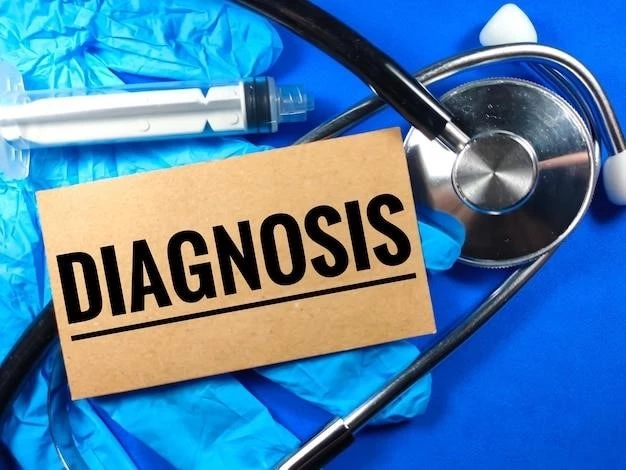Article Plan⁚ Disease ‒ Thiolase Deficiency
Introduction to Thiolase Deficiency
Beta-ketothiolase deficiency (BKT) is a rare inherited condition that affects the breakdown of certain proteins in the body․ Individuals with this condition have impaired ability to produce ketone bodies, leading to a buildup of organic acids and toxins․ Thiolase catalyzes the cleavage of specific compounds and plays a crucial role in various metabolic processes․ Understanding the implications of thiolase deficiency is essential for managing the condition effectively․
Research has shed light on the genetic and molecular aspects of beta-ketothiolase deficiency, highlighting the complexity of this metabolic disorder․ Proper diagnosis and intervention strategies are vital in addressing the challenges faced by individuals with thiolase deficiency․ By recognizing the underlying mechanisms of the condition, healthcare professionals can offer tailored treatment options and support to improve the quality of life for affected individuals․
Understanding Beta-Ketothiolase Deficiency
Beta-ketothiolase deficiency (BKT) is an inherited metabolic disorder that affects the body’s ability to break down proteins effectively․ One of the key enzymes involved, thiolase, plays a crucial role in the breakdown of certain amino acids and ketone bodies․ This deficiency can lead to a buildup of organic acids and toxins, impacting various metabolic pathways․
Individuals with beta-ketothiolase deficiency may experience symptoms related to the impaired breakdown of isoleucine and ketones․ Understanding the genetic and molecular aspects of this condition is essential for accurate diagnosis and personalized treatment plans․ Managing beta-ketothiolase deficiency requires a multidisciplinary approach involving healthcare providers, genetic counselors, and dieticians․
Causes of Thiolase Deficiency
The primary cause of thiolase deficiency, also known as beta-ketothiolase deficiency, is genetic inheritance․ It is an autosomal recessive disorder, meaning that an individual must inherit two copies of the defective gene (one from each parent) to develop the condition․ The gene mutations affect the enzyme thiolase, leading to impaired breakdown of certain amino acids and ketone bodies․
Genetic testing can help identify carriers of the defective gene, providing crucial information for family planning and early intervention․ Understanding the genetic basis of thiolase deficiency is essential for targeted management strategies and personalized care for affected individuals․ Environmental factors do not directly cause thiolase deficiency, emphasizing the genetic nature of this metabolic disorder․
Symptoms and Signs of Thiolase Deficiency
Thiolase deficiency, or beta-ketothiolase deficiency, presents a range of symptoms affecting metabolic processes․ Common signs include recurrent episodes of vomiting, dehydration, lethargy, and poor feeding in infants․ Individuals may exhibit an odor resembling sweaty feet due to the buildup of organic acids․
Additional symptoms can include developmental delays, muscle weakness, and neurological abnormalities․ In severe cases, affected individuals may experience metabolic crises characterized by acidosis and hyperammonemia․ Early detection of these symptoms is crucial for prompt diagnosis and initiation of appropriate treatments to manage thiolase deficiency effectively․
Diagnosis of Thiolase Deficiency
Diagnosing thiolase deficiency involves a combination of genetic testing, biochemical analyses, and clinical assessments․ Genetic testing plays a crucial role in identifying mutations in the gene encoding thiolase, confirming the diagnosis of beta-ketothiolase deficiency․ Biochemical tests measuring organic acids and ketone bodies in blood or urine can provide additional insights․
Clinical symptoms such as metabolic acidosis, hyperammonemia, and neurological abnormalities aid in diagnosing thiolase deficiency․ Healthcare professionals may also conduct enzyme assays to assess thiolase activity in affected individuals․ Early diagnosis is essential for initiating appropriate treatment and management strategies to mitigate the impact of thiolase deficiency on metabolic pathways․
Treatment Options for Thiolase Deficiency
Managing thiolase deficiency involves a multidisciplinary approach to address the complex metabolic imbalances․ Treatment options focus on controlling symptoms, preventing metabolic crises, and optimizing overall health․ Healthcare providers may recommend a specialized diet low in certain amino acids and high in carbohydrates to help manage the condition․
Supplementation with specific nutrients, such as carnitine or Coenzyme Q10, may be beneficial in supporting metabolic function․ Regular monitoring of blood ketones, organic acids, and ammonia levels is essential to track the effectiveness of treatment․ In severe cases, medical interventions like intravenous fluids and medications to stabilize metabolic parameters may be necessary․
Dietary Considerations for Individuals with Thiolase Deficiency
Individuals with thiolase deficiency may benefit from dietary modifications to manage metabolic imbalances effectively․ A diet low in specific amino acids such as isoleucine and rich in carbohydrates can help alleviate symptoms associated with the condition․ Monitoring protein intake and focusing on foods that support metabolic stability is essential․
Consulting with a healthcare provider or a registered dietitian is crucial to develop a customized nutrition plan tailored to the individual’s needs․ Regular monitoring of nutritional status and metabolic markers can guide dietary adjustments to optimize overall health and well-being for individuals with thiolase deficiency․
Managing Thiolase Deficiency in Children
Managing thiolase deficiency in children requires a comprehensive approach that considers their unique needs and challenges․ Close monitoring of growth, development, and metabolic markers is essential to tailor treatment strategies effectively․ Children with thiolase deficiency may benefit from early intervention with specialized diets and nutritional supplements․
Education plays a vital role in empowering caregivers to handle potential metabolic crises and recognize signs of metabolic decompensation in children․ Collaborating with pediatric specialists, genetic counselors, and dieticians can help support children with thiolase deficiency in achieving optimal growth and development while managing the metabolic demands of the condition․
Pregnancy and Thiolase Deficiency
Managing thiolase deficiency during pregnancy requires close collaboration between healthcare providers and genetic specialists to ensure the well-being of both the mother and the developing fetus․ Genetic counseling can provide valuable insights into the inheritance patterns of the condition and help families make informed decisions․
Pregnant individuals with thiolase deficiency may require specialized dietary interventions and regular monitoring of metabolic parameters to prevent complications․ Proper prenatal care, including monitoring maternal nutritional status and metabolic function, is essential to support a healthy pregnancy outcome in the context of thiolase deficiency․
Potential Complications of Untreated Thiolase Deficiency
Untreated thiolase deficiency can lead to severe complications due to the body’s inability to effectively metabolize proteins and ketone bodies․ Without proper management, individuals may experience recurrent metabolic crises, which can result in life-threatening conditions such as acidosis and hyperammonemia․

Long-term complications of untreated thiolase deficiency may include developmental delays, neurological impairments, and muscle weakness․ Chronic elevation of organic acids and toxins in the body can also impact various organ systems, leading to systemic complications․ Early diagnosis and intervention are crucial to prevent the progression of complications associated with untreated thiolase deficiency․
Research and Advancements in Thiolase Deficiency
Ongoing research continues to deepen our understanding of thiolase deficiency and explore innovative treatment approaches․ Scientists are investigating genetic mechanisms, enzyme functions, and metabolic pathways to uncover new insights into the condition․
Advancements in diagnostic techniques, such as genetic testing and biomarker analysis, hold promise for early detection and personalized management strategies for individuals with thiolase deficiency․ Collaborative efforts across research institutions aim to improve outcomes and quality of life for affected individuals by developing targeted therapies and optimizing patient care․

Support Resources for Individuals with Thiolase Deficiency
For individuals living with thiolase deficiency, accessing support resources can make a significant difference in managing the condition and improving quality of life․ Genetic counseling services can provide valuable information about the genetic basis of the disorder and aid in family planning decisions․
Support groups and online communities dedicated to rare metabolic disorders like thiolase deficiency can offer a sense of community, shared experiences, and emotional support․ Connecting with healthcare professionals specializing in metabolic conditions can ensure comprehensive care and access to the latest treatment options for individuals with thiolase deficiency․
Lifestyle Modifications for Individuals with Thiolase Deficiency
Living with thiolase deficiency may require lifestyle modifications to manage the condition effectively․ Individuals should prioritize a well-balanced diet rich in carbohydrates and low in specific amino acids like isoleucine․ Regular exercise and physical activity are important to support overall health and metabolic function․
Managing stress levels and getting an adequate amount of rest and sleep can help individuals with thiolase deficiency maintain their energy levels and well-being․ Engaging in activities that promote relaxation and mental well-being, such as yoga or meditation, may also be beneficial․ It is essential for individuals with thiolase deficiency to work closely with healthcare providers to tailor lifestyle modifications that suit their specific needs․
Impact of Thiolase Deficiency on Mental Health
Thiolase deficiency can have an impact on mental health due to the physical and metabolic challenges it presents․ Individuals may experience emotional stress and anxiety related to managing their symptoms and adhering to dietary restrictions․ The chronic nature of the condition and potential for metabolic crises can also contribute to feelings of uncertainty and vulnerability․
Seeking support from mental health professionals, joining support groups, and engaging in stress-reducing activities can help individuals cope with the emotional aspects of living with thiolase deficiency․ It is essential for caregivers and healthcare providers to be mindful of the emotional well-being of individuals with thiolase deficiency and provide necessary support to address any mental health concerns that may arise․
Conclusion and Future Outlook for Thiolase Deficiency
In conclusion, thiolase deficiency, specifically beta-ketothiolase deficiency, poses significant challenges for affected individuals due to impaired protein and ketone body metabolism․ However, advancements in genetic testing, diagnostic tools, and research are paving the way for improved understanding and management of this rare condition․
Looking ahead, the future outlook for thiolase deficiency involves ongoing research into novel treatment modalities, personalized interventions, and enhanced support resources for individuals living with the condition․ By integrating cutting-edge technologies and interdisciplinary approaches, the medical community is striving to enhance the quality of life and outcomes for individuals affected by thiolase deficiency․
